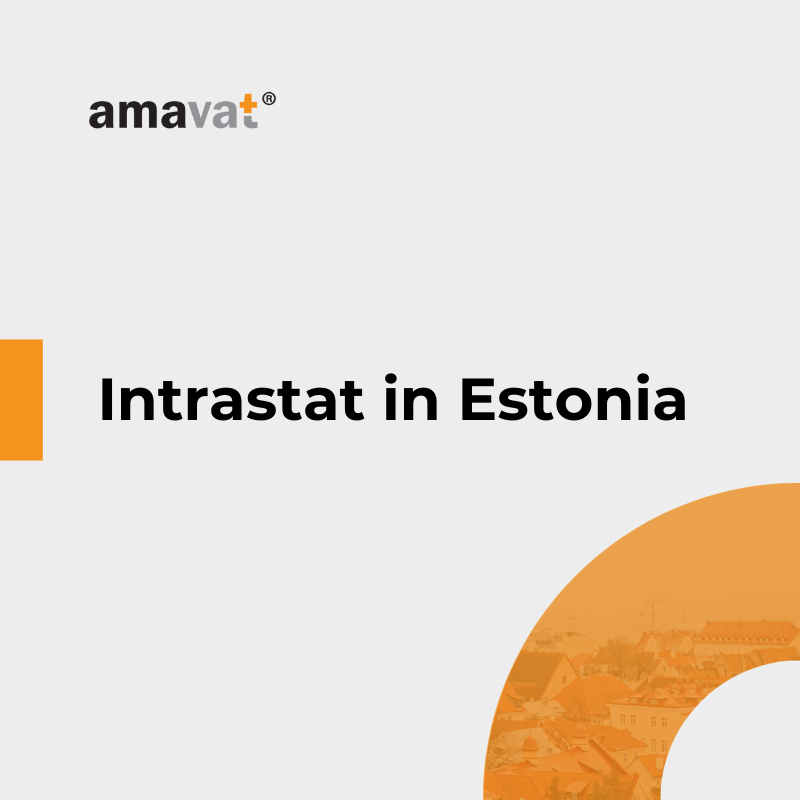New Intrastat thresholds in Estonia: Requirements and procedures

Spis treści
General information and responsible authorities
Intrastat declarations in Estonia are submitted to Statistics Estonia, the main supervisory authority for this process. This institution is responsible for collecting, analyzing, and publishing data on the country’s foreign trade. As part of its duties, Statistics Estonia monitors the flow of goods between Estonia and other EU member states, as well as trade with non-EU countries. Strict control and reliable analysis of economic data are crucial for the effective functioning of the EU’s internal market and for making informed political and business decisions. All necessary information and forms required to correctly complete Intrastat declarations can be found on the official Statistics Estonia website. This enables businesses and other entities involved in trade to efficiently fulfill their reporting obligations.
Declaration periods and submission deadlines
VAT-registered businesses in Estonia are required to submit monthly Intrastat declarations, which is a key element in monitoring and reporting foreign trade. The submission deadline is the 14th day of the month following the reporting period, meaning businesses have limited time to collect and submit the necessary data. This is important to ensure continuity and accuracy in reporting, which is vital for analyzing trade trends and making strategic decisions.
It is important to note that submission deadlines do not get extended even if they fall on a weekend or holiday. Therefore, businesses must be aware and plan their actions to meet the deadlines. Failure to comply with submission deadlines may result in reminders from the responsible authorities, leading to additional administrative burdens and financial consequences.
Intrastat thresholds in Estonia
A VAT-registered business in Estonia must start submitting Intrastat declarations if it exceeds the relevant threshold within a year. This means that declarations must be submitted from the month in which the threshold is reached or exceeded. However, there is a possibility of exemption from the obligation to submit declarations if the business’s deliveries/receipts did not reach or exceed the threshold value in the previous year.
Submission methods
- Paper Submission
Paper forms for Intrastat declarations can be found on the Statistics Estonia website. They should be filled out according to the guidelines, preferably in capital letters. The completed declaration must be scanned and sent via email to stat@stat.ee or to a specified address. - Electronic Submission
For electronic submission, the online environment eSTAT is used. The business must request the creation of a main user account. Additional information on using eSTAT can be obtained by calling +372 625 9100.
Current thresholds in Estonia
Statistical threshold for dispatches:
- EUR 350,000
This means that companies whose value of goods dispatched to other EU countries exceeded EUR 350,000 in 2024 are required to submit monthly Intrastat declarations in 2025.
Abolition of the reporting obligation for arrivals:
Starting in 2025, Estonia has eliminated the requirement to submit Intrastat declarations for goods arriving from other EU countries. This decision was made after three years of analysis, which showed that import data is sufficiently accurate and can be obtained from other sources.
Declaration submission deadlines:
Intrastat declarations in Estonia must be submitted by the 14th day of the month following the reporting month. For example, data for January 2025 must be submitted no later than February 14, 2025.
Declaration corrections
For paper declarations, a copy of the original declaration with appropriate corrections should be sent. For electronic submissions, corrections must be made in the appropriate file and sent via email with a statement.
Zero declarations
If a business is required to submit monthly Intrastat declarations, zero declarations must be submitted for months in which no intra-EU deliveries or acquisitions took place.
Penalties
Penalties for non-compliance with Intrastat requirements are an important tool to ensure thoroughness and accuracy in trade data reporting. In Estonia, these can be as high as €9,600, representing a significant financial penalty for businesses not adhering to the regulations.
It is important to note that the authorities overseeing the Intrastat process can enforce these penalties if discrepancies are found in the declarations or if they are submitted late. Therefore, both small and large businesses should be particularly careful and diligent in this regard to avoid the risk of financial penalties.
VAT rates in Estonia
The VAT rates in Estonia have recently changed. The current standard VAT rate is 22%, raised from 20% as of January 1, 2024. This rate applies to all products and services that do not qualify for reduced rates – 9%, 5%, and 0%. The 9% rate applies to some pharmaceuticals, medical equipment for the disabled, press publications, and hotel services. The second reduced rate of 5% covers press publications on physical and electronic media. The third reduced rate of 0% applies to intra-EU and international transport.
For more information on VAT rates in Estonia, please see our article.
Summary
Intrastat reporting in Estonia is a crucial tool for monitoring intra-EU trade. Businesses must strictly comply with declaration requirements to ensure the proper functioning of the process and avoid potential penalties. Ensuring the timeliness and accuracy of submitted declarations is key to the effective operation of the Intrastat system in Estonia.
For any questions or additional information, please contact our team of experts, ready to provide assistance and support: Contact us – amavat®.





